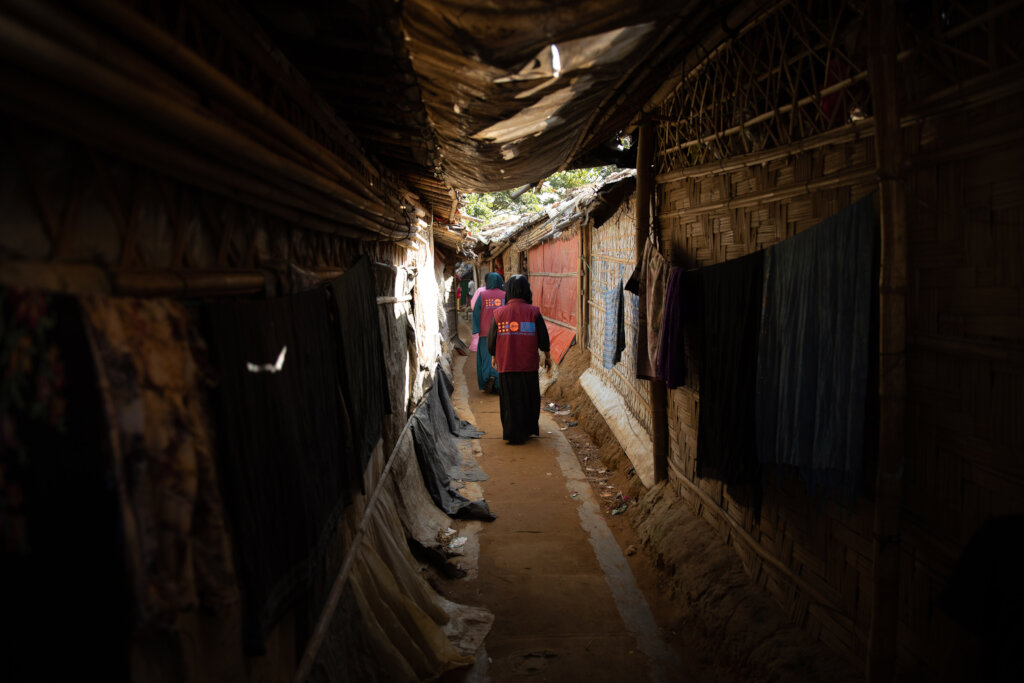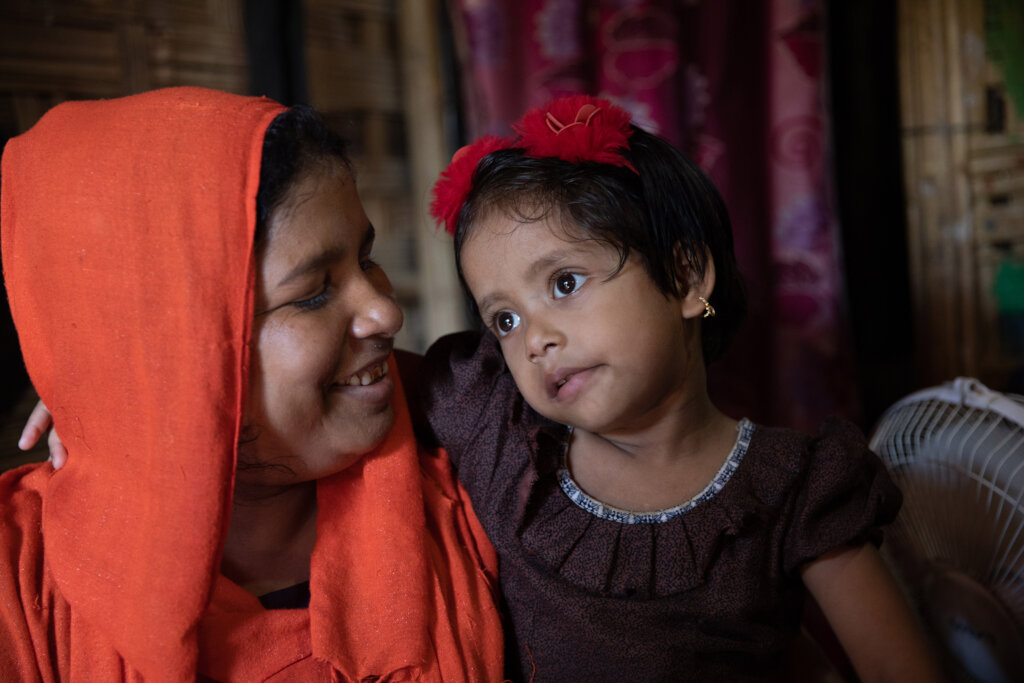By Communications Team | USA for UNFPA
Khaleda and her husband have called the Rohingya refugee camp in Cox's Bazar home for years, having fled Myanmar to seek safety and a better future. At 30 years old, Khaleda is a mother of four – three sons and one daughter.
Life in the refugee camp has not been easy, but Khaleda found support and guidance from the dedicated community health workers who regularly visited her home in the Rohingya camp. These visits, along with informative courtyard sessions held in her community, taught Khaleda valuable information about maternal healthcare and family planning.
It was through one of these interactions that Khaleda learned about the benefits of delivering her last child, Runa, in a healthcare facility rather than at home. This experience instilled in her a sense of trust and confidence in midwives and the healthcare services available to her.
For $100, you can fund a midwife's work for a week so she can help women like Khaleda to safely deliver their babies.
In addition to maternal health, the community health workers introduced Khaleda to various family planning options. This information was transformative. Understanding the importance of managing the size of her family for their overall well-being, Khaleda made an informed decision to opt for an implant, a method of contraception that would prevent pregnancy for four years.
“Too many children means too much responsibility,” Khaleda shared with us afterwawrd. "The implant has brought me peace, allowing me to care for my existing children without the added stress of an unplanned pregnancy." She added, feeling empowered and in control of her reproductive health.
One of the health workers in the camp, Amina, has been a consistent source of support for Khaleda. “I remember when Amina first visited me,” Khaleda recalls. “I was overwhelmed with my responsibilities, and the idea of more children was frightening. Amina patiently explained to me the various family planning methods."
Amina's dedication goes beyond just providing information. She often sits with Khaleda and other women in the camp, discussing not just health, but also the cultural beliefs that sometimes conflict with modern family planning methods.
“In our community, there is a strong belief that children are a blessing from Allah and that it's not our place to prevent births,” Amina explains. “But we also have to consider the health and future of the children we already have.”
$150 provides supplies, medications and equipment to health clinics so women can have access to famly planning resources and also receive care for obstetric emergencies.
Khaleda’s journey was not without its challenges. Convincing her husband and her family initially about the implant was difficult. But Khaleda is glad she persisted and got the implant. Overall, her experience with the implant has been positive, and she plans to continue using this method after the current one reaches the end of its lifespan.
Her story teaches us that even in the most trying circumstances, empowerment is just a choice away. Her courageous journey reminds us that family planning is more than a healthcare issue; it’s a woman’s path to reclaiming control of her life. It highlights the importance of community health initiatives and the profound difference they can make in the lives of individuals.
Through continuous awareness sessions and access to essential health services, UNFPA empowers women like Khaleda to make informed choices about their reproductive health, ensuring better futures for their families living in the Rohingya refugee camps.
Thank you for your ongoing support of this vital work. For just $45, you can further support women and girls in Rohingya by providing essential hygiene and menstrual supplies.
Project reports on GlobalGiving are posted directly to globalgiving.org by Project Leaders as they are completed, generally every 3-4 months. To protect the integrity of these documents, GlobalGiving does not alter them; therefore you may find some language or formatting issues.
If you donate to this project or have donated to this project, you can receive an email when this project posts a report. You can also subscribe for reports without donating.
Support this important cause by creating a personalized fundraising page.
Start a Fundraiser
